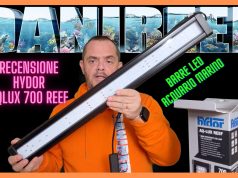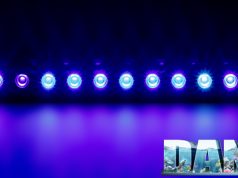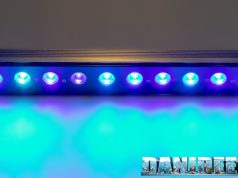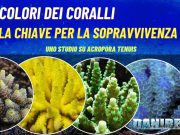
We tried the bars Orphek Blue Plus in OR2 version and we were very curious to test the new OR3 version to see how they’ve been updated.
This article is also available in: italiano
Many parts of this review are identical, or pretty similar, to the other OR3 bars, because the ceiling lights are absolutely identical.
Even in this case we were very excited to test the ceiling light and to compare it with the other OR3 at our disposal, that are the Blue Sky, the Reef Day Plus, the UV/Violet (italian), and obviously the Blue Plus in OR2 version. Since we could test them all in a close time we can show them in detail, otherwise we’d have bombed you with numbers.
The bars are beautiful, solid and they seem very well built, as the other OR3, in fact the shell between the bars is identical. Now Orphek has finally made available a dimmer, that allows to dim the lights while they turn on and off, without distinguishing between channels. We waited so much for the dimmer, because it’s maybe the only thing that lacked in these ceiling lights. Even though, as you know, the dimmer is less important for bars than for actual ceiling lights. But we’ll talk about this later.


Technical characteristics of the LED bars Orphek OR3 Blue Plus
- Driver: external;
- Input Voltage: 100-240VAC;
- Frequency: 50-60Hz;
- Power consumption: 60 watts +-5%;
- Cos(phi) > 0.9;
- Input current (Amps) 0.55;
- Length: 123,5 cm;
- Width: 5 cm;
- Height: 3,6 cm;
- Weight: 2,3 kg;
- Used LED: 4×400/410nm, 4×420/425nm, 8×430/435nm, 11×450/460nm, 5×460/470nm, 4×470/475nm.
- Price for the public: 280 euro the 120 cm version.
The peculiarities of the Orphek OR3 Blue Plus
The new LED bars of the very lucky OR3 series is born with LED of 400 to 500 nanometers. The ceilingh light is openly blue/violet, with a broader fluorescent spectrum. We really liked the OR2 Blue Plus, which is still on sale, as you can read in our DaniReef LAB (here). But Orphek, continuing with the studies on corals and reefs, as well as on our aquariums, affirmed that these new versions are a evolutionary step into the future, expecially for the return with corals and their fluorescences.
As Orphek itself says: “Corals and anemones have at least two kinds of color compounds: fluorescent and non fluorescent. Fluorescence happens when a compound absorbs lights and emits it (fluorescent) at a longer wave length, so the fluerescent compounds light up (or “burst”) under the UV light, violet or blue, while the non fluorescent compounds don’t. In fact, they appear opaque under thos wave lenghts called cromoproteins. However, they all are proteins produced by the coral or the anemone“.

The suspension kit
The bars are sold with a suspension kit, which is pretty short to be fair, so, if you’re planning to hang them to the ceiling, you should also buy an extention. This kit is designed for Orphek‘s suspension arms or to the suspension kit of the We’ve already said this, but again, the Orphek OR3 are very well build. The external refinement works as passive heatsink and, given the weight and the volume of the aluminium, we’re sure that these LED bars won’t have any problem of overheating. And the assembly is basically perfect.

The Programming
LED bars, generally, can’t be programmed, and the Orphek OR3 aren’t the exception, at least at this day. Some bars of the competitors provide an equipment with a controller for the dimming, or at least it can be bought singularly. Orphek has long announced the release of their own dimming and we’re testing it now for you! Soon you’ll read the article about this long-awaited Osix. But with LED bars in general, I think the problem is relative. The spectrum has to be decided based on the bars that you want to couple and you can make a sort of dimming by switching on a bar at time. Let’s be clear, I’m not saying that dimming isn’t important, but when you use ceiling lights the lack is far more noticeable.


Differently from usual we can’t give you consumption and values of each LED singularly, because these bars switch on all the LED simultaneously.
All the values we measured and our working method called DaniReef LAB are on page two.















